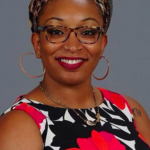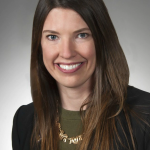Sept 21, 2021: Race, Place, and Political Boundaries
Date/Time
Sep 21, 2021
2:00 pm - 6:00 pm
Location
Oscar Ritchie Hall
Race, Place, and Political Boundaries.
Tuesday, September 21, 2-6pm
Oscar Ritchie Hall [parking]
Part of our new Race and Democracy in Northeast Ohio Series–a collaboration with the School of Peace and Conflict Studies (SPCS) and the Center for Pan-African Culture (CPAC).
We will explore the relationship between race and place, focusing on the significance of political boundaries–from redistricting to redlining. The event will be part teach-in/ facilitated discussion and part map-drawing workshop. Join us for all or part of the event.
Please note that masks are required for all attendees. If you want to learn more about KSU’s masking policy, check here. Additionally, if you are unable or uncomfortable attending an in-person event at this time, we will be live streaming the Panel discussion. Link to live stream (panel).
Event Schedule:
- 2:00-3:30pm: Panel Discussion and Facilitated Community Dialogue (250 Oscar Ritchie Hall, live stream)
- Panel & Discussion Moderator: Dr. Shemariah Arki, Assistant Professor and Director of Center for Pan-African Culture
- Kathleen Clyde, Ohio Citizens Redistricting Commission Co-Chair
- Dr. Michael Ensley, Associate Professor of Political Science
- Erik Gomez, Director of Governmental Affairs, KSU Undergraduate Student Government
- Gregory Moore, Ohio Citizens Redistricting Commission Co-Chair
- 3:30-4:30pm: Light Refreshments, Tour, and Gallery Walk, hosted by Center for Pan-African Culture
- 4:30-6:00pm: Map-making Workshop (250 Oscar Ritchie Hall)
- Workshop facilitated by Dr. Jen Mapes, Associate Professor of Geography
- About the workshop: At the map-making workshop we’ll look at the power of boundaries to affect our lives, with a focus on the neighborhood scale. While we often focus on congressional districts when we talk about lines being drawn to preserve power, other more local boundaries can affect us too: city wards, school districts, public transit systems, and state representatives are all decided by sometimes-arbitrary and sometimes-purposeful line-drawing. These lines are often based on preserving the status quo, protecting neighborhood segregation by race and class, and responding to special interests. In this workshop, we’ll use tangible printed maps to look at these neighborhood/city-scale boundaries for our area, consider their impact, and imagine & create maps that are more equitable.
Event Co-Sponsors: Kent State Votes, the School of Multidisciplinary Social Sciences and Humanities, and the Department of Geography
This event is made possible with funding from Mark Lewine and the John Gray Paynther Program.
About our Panelists:
 Dr. Shemariah J. Arki identifies as an educator, an activist and an organizer. Currently serving as director of the Center for Pan African Culture at Kent State University and also as the Founding Program Director at the Ellipsis Institute for Womxn of Color in the Academy, she is an intersectional feminist scholar with expert knowledge and skills to develop, implement, facilitate and evaluate curricula that promote institutional equity, communication, and access for traditionally marginalized students and families. Shemariah received her BBA and MEd from the American Intercontinental University and her Ed.D. from Northeastern University.
Dr. Shemariah J. Arki identifies as an educator, an activist and an organizer. Currently serving as director of the Center for Pan African Culture at Kent State University and also as the Founding Program Director at the Ellipsis Institute for Womxn of Color in the Academy, she is an intersectional feminist scholar with expert knowledge and skills to develop, implement, facilitate and evaluate curricula that promote institutional equity, communication, and access for traditionally marginalized students and families. Shemariah received her BBA and MEd from the American Intercontinental University and her Ed.D. from Northeastern University.

Kathleen Clyde served four terms in the Ohio General Assembly, representing the 75th House District in Portage County in Northeast Ohio from 2011-2018. She was the Democratic nominee for Ohio Secretary of State, garnering over 2 million votes (47%) in her first run for statewide office in 2018. A national expert on election and voting rights issues, Kathleen helped mount legal defenses to various anti-voter measures eventually vetoed or found to be unconstitutional in state and federal courts, including the U.S. Supreme Court. Currently focusing her attention on developing fair districts for all Ohioans in the state legislature and in Congress, Kathleen serves as Co-Chair of the Ohio Citizens Redistricting Commission.

Dr. Michael J. Ensley is an Associate Professor of Political Science at Kent State University (2009-present). He received his PhD. from Duke University (2002) and his B.A. in History and Political Science from the University of California, San Diego (1997). He teaches a variety of courses on American politics and research methods at the undergraduate and graduate level. His research analyzes how candidates for and members of the U.S. Congress respond to the competing demands of citizens, activists, interests groups, and political parties.

Erik Gomez is a junior majoring in political science. He serves as the Director of Governmental Affairs for Undergraduate Student Government at Kent State. In this role he leads the Kent State Votes initiative where he collaborates with students, faculty and staff to get students registered to vote. Erik also advocates for students by tracking legislation that may affect the student body. Erik is currently tracking Ohio House Bills 322 and 327, which is aimed to criminalize teaching diversity, race and “divisive concepts” in K-12 schools and Universities.

Gregory T. Moore is one of the nation’s leading voting rights leaders and advocates with a long and distinguished history of political empowerment and issue advocacy. He has served in several leadership positions throughout his many years of grassroots organizing and program development at the local, state and national level. He is currently the President and CEO of the Promise of Democracy Foundation, Inc., 501(C) (3) non-profit organization committed to expanding voting rights and continuing his work of breaking down barriers to full participation in American Democracy. He currently serves as Co-Chair of the Ohio Citizens Redistricting Commission.
Bookings
Bookings are closed for this event.
